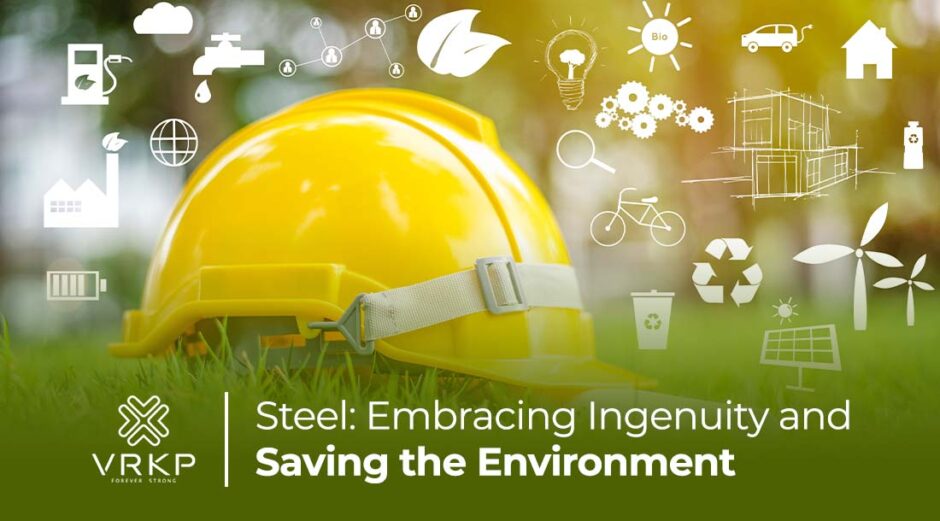Steel: Embracing Ingenuity and Saving the Environment
How does technological advancement benefit future generations if it is not to improve their lives? Businesses need to balance the act of profit-making and caring for the environment. The steel industry comes with a baggage of ‘fugitive emission’ when globally, over 240 kilograms of steel are produced per person per day, causing a surge in industrial pollution.
What can the smarter choices be to make the industry sustainable and futuristic? A check on carbon emissions, recycling of steel, and increased energy efficiency are pivotal, and preserving natural resources is even more critical.
Resource Management and Optimizing Processes
Unless we manage our natural resources judiciously, resources like coal which is indispensable to steel production will get obsolete. A crucial factor influencing energy intensity and CO2 emissions is the quality of iron ore and coking coal. It is possible to substantially improve operational performance by beneficiating ore and coal at the source, switching to carbon-lean or hydrogen-based fuels, and increasing scrap usage in the basic oxygen furnace.
The electric arc furnace is one of the most efficient ways to make new steel out of scrap metal. Electric furnaces can recycle a tonne of steel in about an hour, using about 40% less energy than a basic oxygen furnace.
Reducing and Recycling
Steel is a highly recyclable material and strong even after reconstruction. Steel manufacturing companies can considerably reduce using fresh raw materials by recycling steel. It makes steel production energy-efficient and a resourceful alternative. Using scrap metal in construction is a sustainable choice as every time it’s recycled, the metal gets transformed into something new.
It helps save 75% of energy, 90% of virgin iron-ore use, 40% of water usage, and reduce air pollution by 86% and water pollution by 76%, according to the US -EPA. Reuse and recycling practices will enhance the end-to-end product lifecycle.
Production Of Corrosion-Resistant Steel
Yet another significant way to reduce mass production of steel is to produce corrosion-resistant steel, as it has a longer shelf life and serves long boosting the sustainability factor pertaining to steel manufacturing.
Alternate Use of Steel Co-products
It is possible to use co-products such as slag, sludge, process gases, chemicals, emulsions, and oils in alternative ways that are environment-friendly. Among the uses of steel slag are manufacturing fertilizers, liming materials for agriculture, and road construction.
Steel products are recyclable, and their easy reconstruction makes them the metal of the future.
For the most trusted steel TMT bars, get in touch with the leading manufacturer in South India, https://www.vrkp.in/

